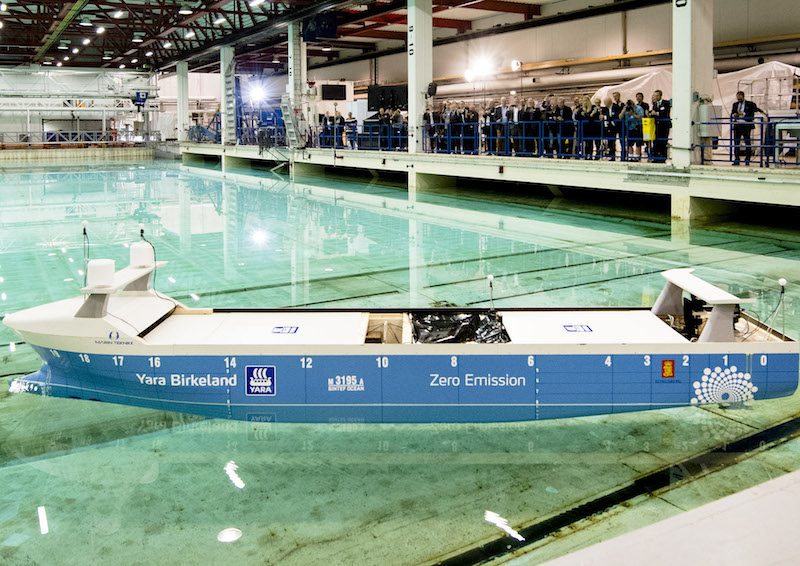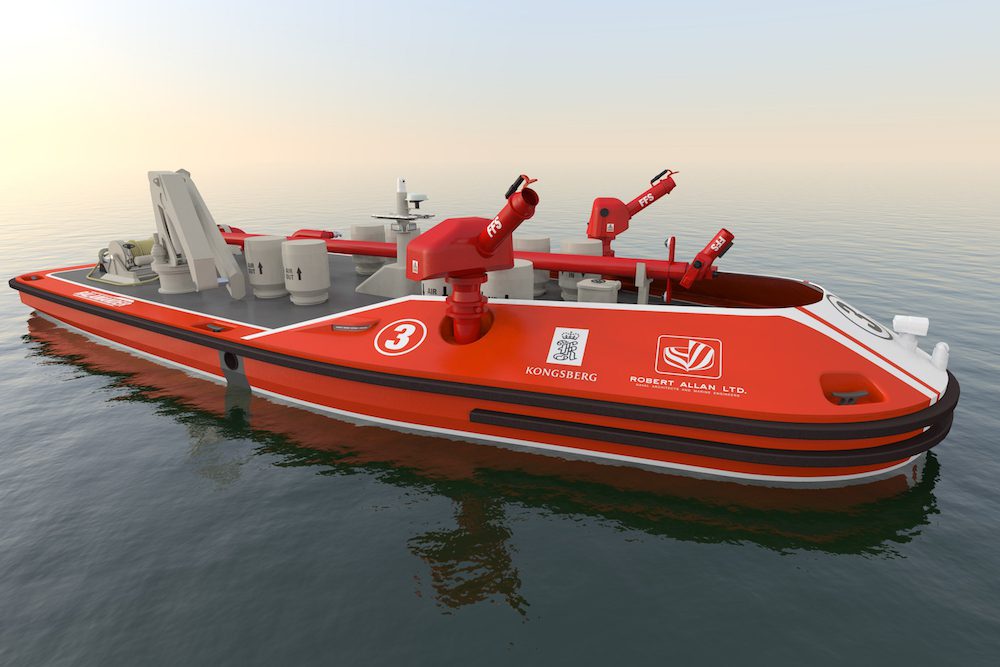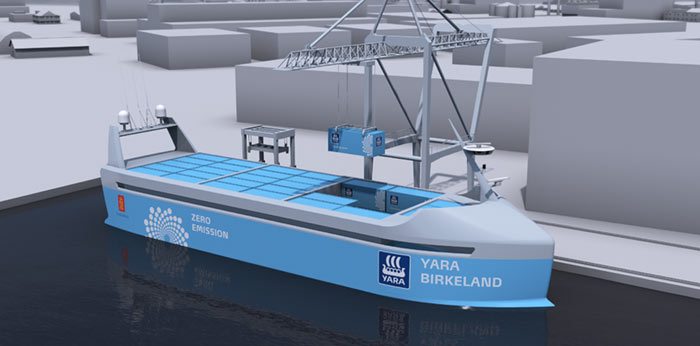Updated: December 15, 2011 (Originally published April 5, 2011)
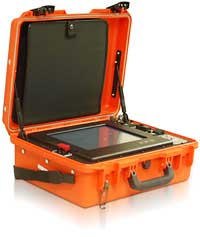 Kongsberg has just unveiled its new Emergency Acoustic BOP Control System, the ACS500. In an emergency situation, the ultra-portable unit can be carried on a liferaft or helicopter and used to remotely activate a well’s blow out preventer by sending acoustic signals through tranceivers placed in the water.
Kongsberg has just unveiled its new Emergency Acoustic BOP Control System, the ACS500. In an emergency situation, the ultra-portable unit can be carried on a liferaft or helicopter and used to remotely activate a well’s blow out preventer by sending acoustic signals through tranceivers placed in the water.
The ACS500’s surface system includes the Acoustic Command Unit (ACU), housed in splash-proof pelican-like case, and a choice of “dunking transducers” with 70m of cable that, when put in the water, send the signal to activate the BOP. The unit is rated to an impressive 4000m, increasing its appeal across a broad range of projects.
The ACU is designed for portability and ease-of-use, featuring a handle and shoulder strap and internal rechargeable battery with over 10 hours of operation per charge. It is easily operated via the PC display using a touch screen/ trackball combination.
An alternativefunction on the ACU is the EME Emergency system, which may perform a single automatic and predefined sequence of BOP valve operations with a two-hand/two-button operation. The ACS system may also be operated from Kongsberg Maritime’s High Precision Acoustic Positioning system, HiPAP, which is normally installed aboard the floating drilling unit.
For full redundancy, the ACS500’s subsea system consists of two separate Subsea Control Units (SCU) and two Subsea Communication Transducers along with two interface cables to the BOP. The SCUs are mounted on the BOP and translate acoustic command signals from the ACU into operational commands, which are used to operate hydraulic control valves on the BOP. Once the command signal has been given (by the operator), a confirmation signal is transmitted by the SCU to the ACU. For improved reliability, the control system can also read the status of the SCU including various hydraulic control valves and sensor read backs.
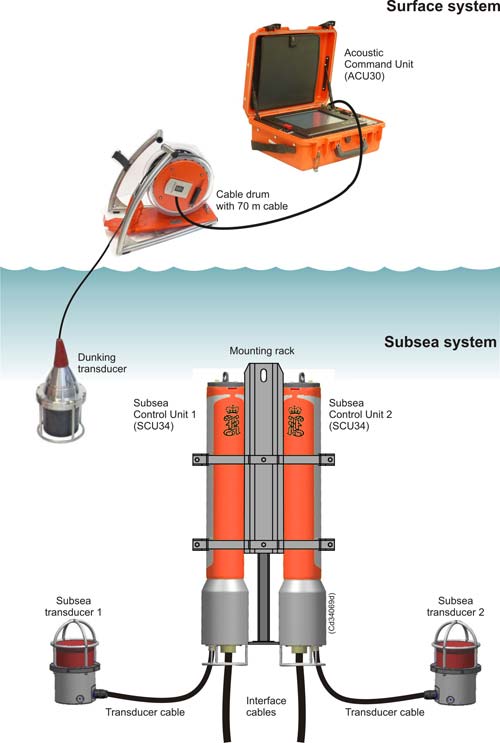
Editorial Standards · Corrections · About gCaptain

 Join The Club
Join The Club






